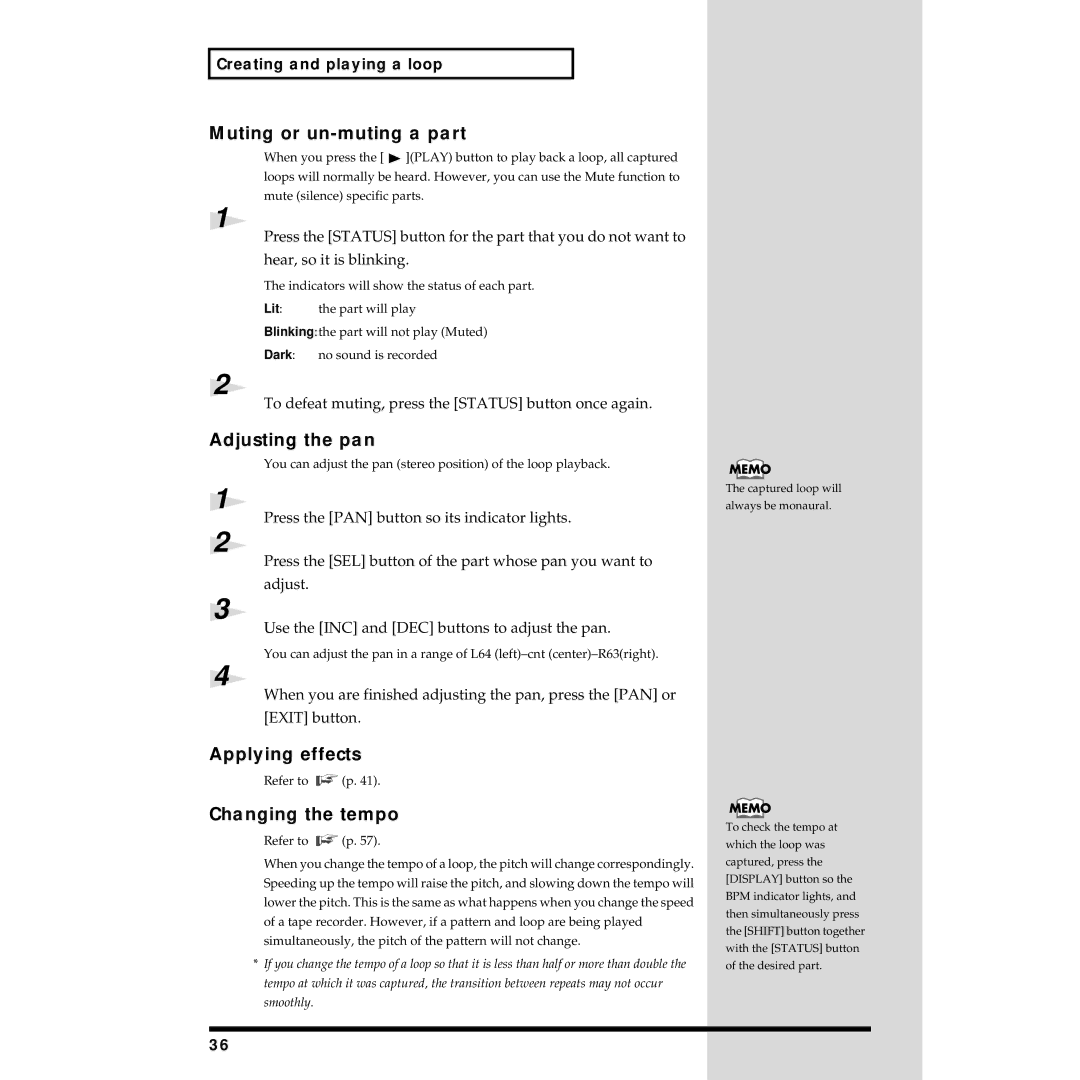
Creating and playing a loop
Muting or un-muting a part
When you press the [ ![]() ](PLAY) button to play back a loop, all captured loops will normally be heard. However, you can use the Mute function to mute (silence) specific parts.
](PLAY) button to play back a loop, all captured loops will normally be heard. However, you can use the Mute function to mute (silence) specific parts.
1
Press the [STATUS] button for the part that you do not want to hear, so it is blinking.
The indicators will show the status of each part.
Lit: the part will play
Blinking:the part will not play (Muted)
Dark: no sound is recorded
2
To defeat muting, press the [STATUS] button once again.
Adjusting the pan
You can adjust the pan (stereo position) of the loop playback.
1
Press the [PAN] button so its indicator lights.
2
Press the [SEL] button of the part whose pan you want to adjust.
3
Use the [INC] and [DEC] buttons to adjust the pan.
You can adjust the pan in a range of L64
4
When you are finished adjusting the pan, press the [PAN] or [EXIT] button.
Applying effects
Refer to ![]() (p. 41).
(p. 41).
Changing the tempo
Refer to ![]() (p. 57).
(p. 57).
When you change the tempo of a loop, the pitch will change correspondingly. Speeding up the tempo will raise the pitch, and slowing down the tempo will lower the pitch. This is the same as what happens when you change the speed of a tape recorder. However, if a pattern and loop are being played simultaneously, the pitch of the pattern will not change.
*If you change the tempo of a loop so that it is less than half or more than double the tempo at which it was captured, the transition between repeats may not occur smoothly.
The captured loop will always be monaural.
To check the tempo at which the loop was captured, press the [DISPLAY] button so the BPM indicator lights, and then simultaneously press the [SHIFT] button together with the [STATUS] button of the desired part.
36
